#spanish independence
Text
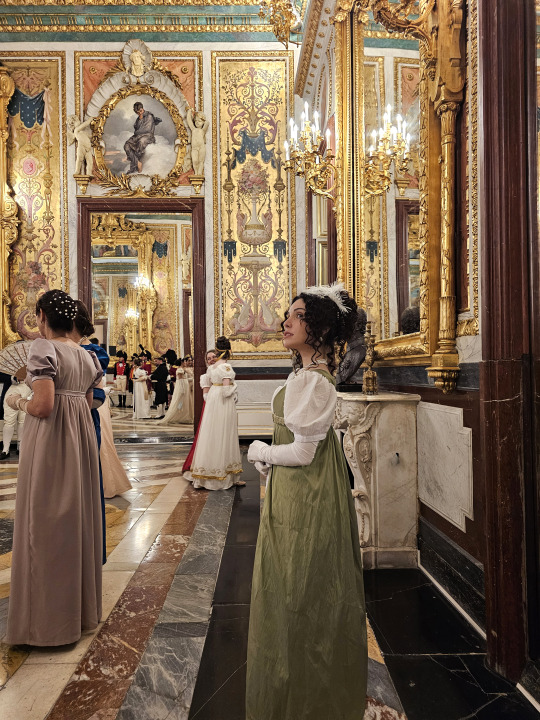
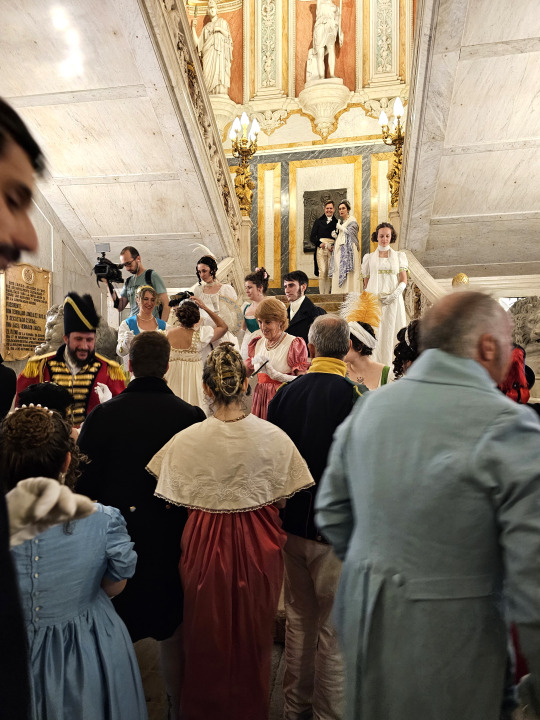
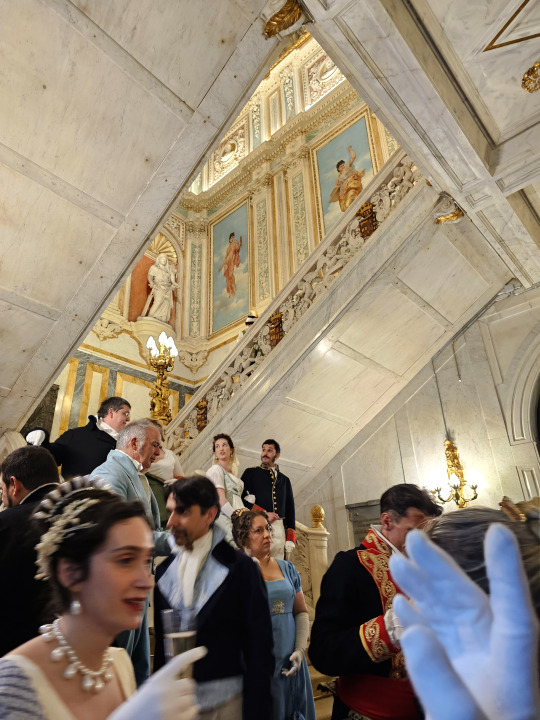
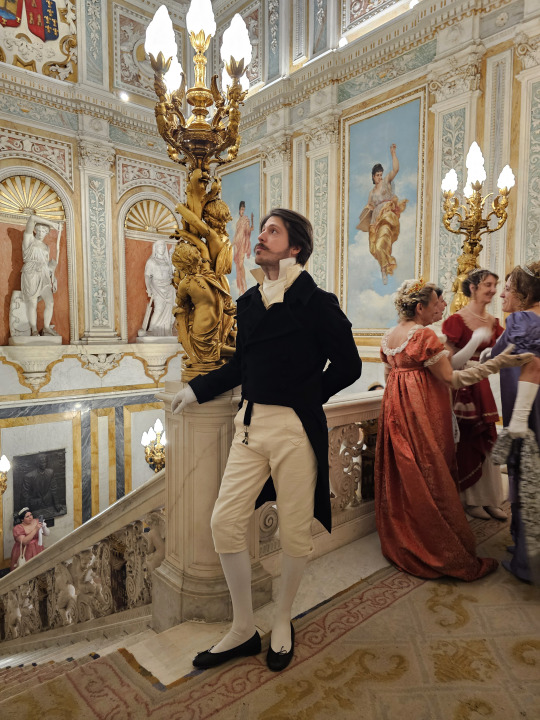
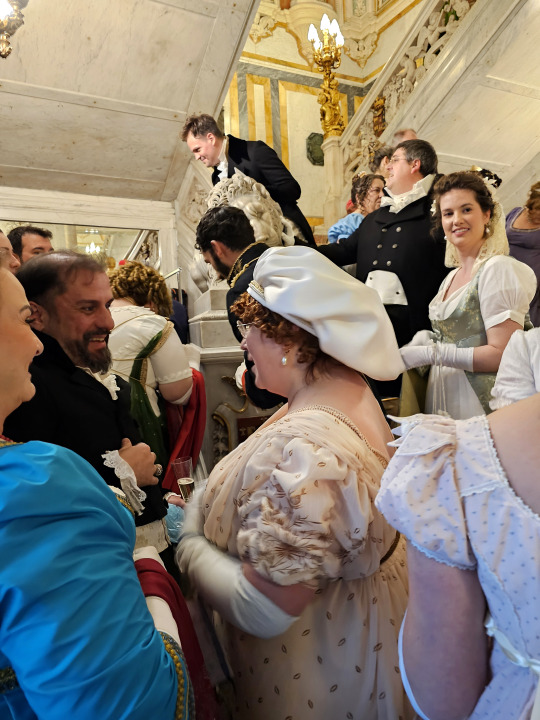
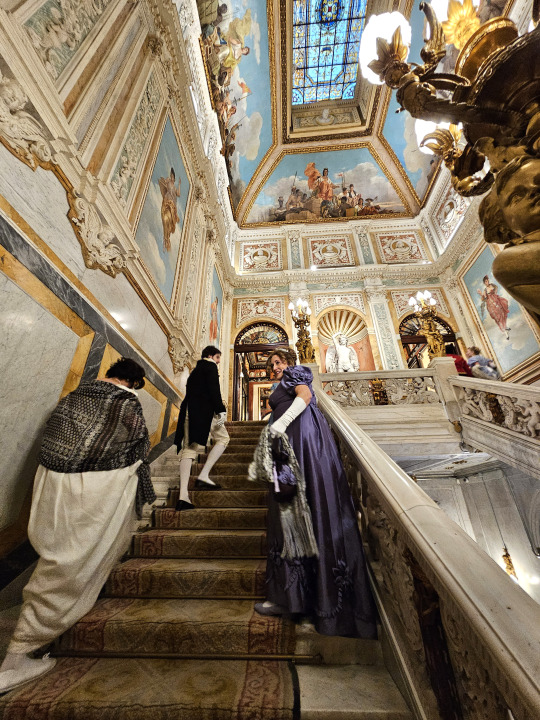
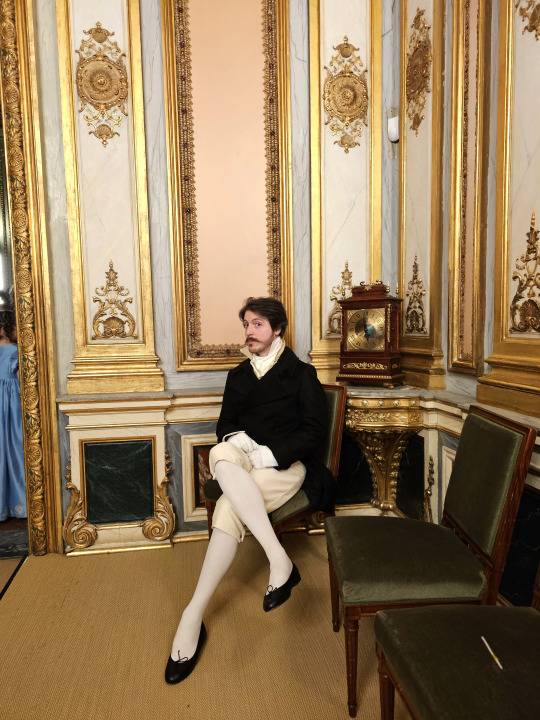
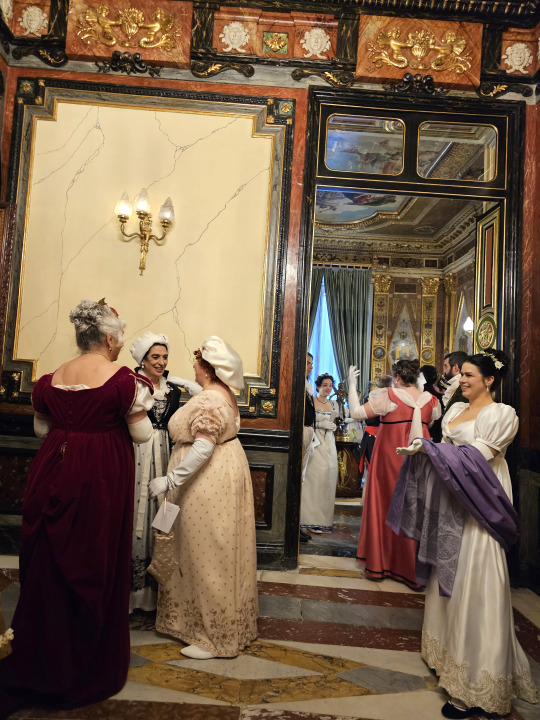
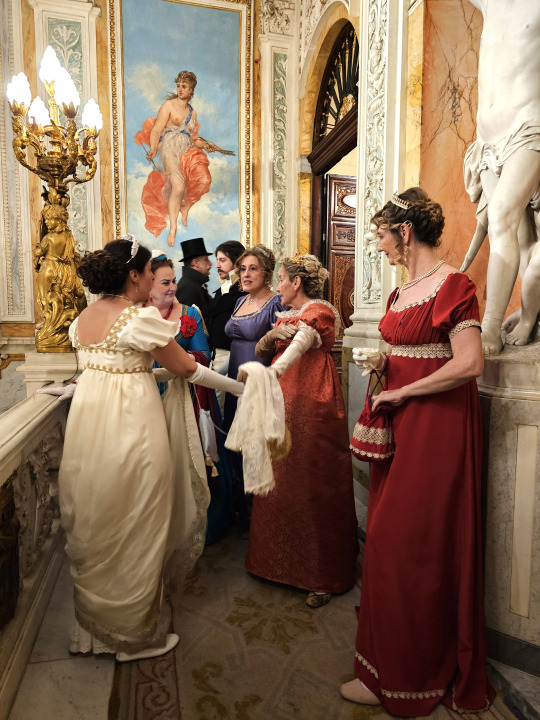
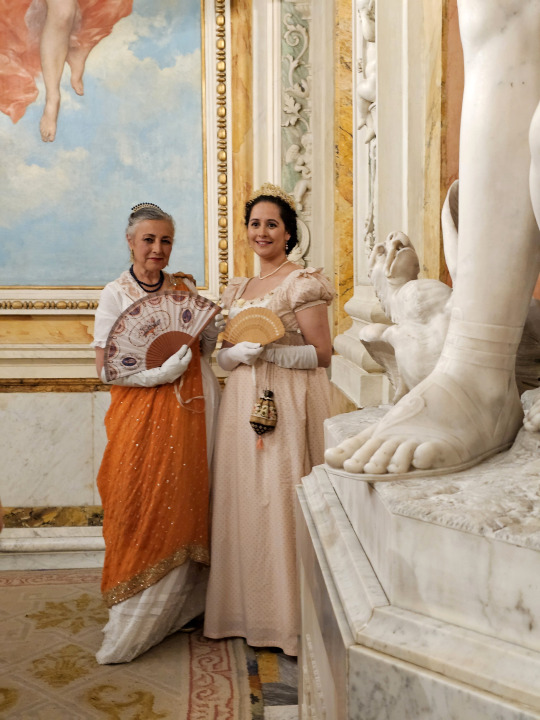
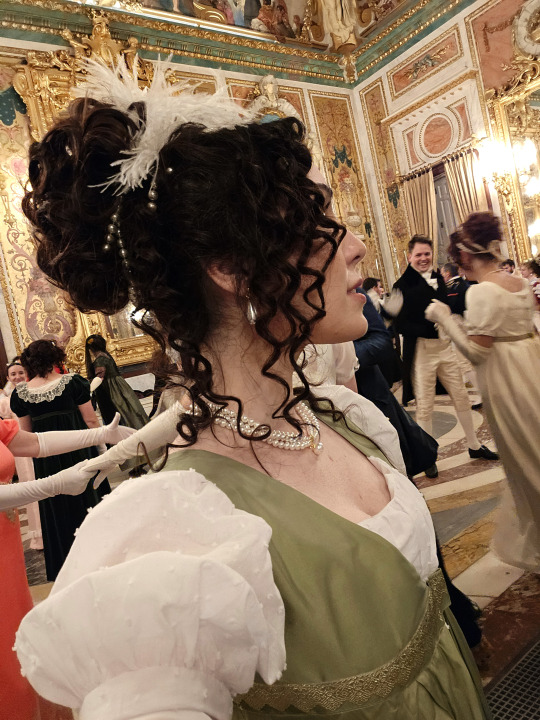
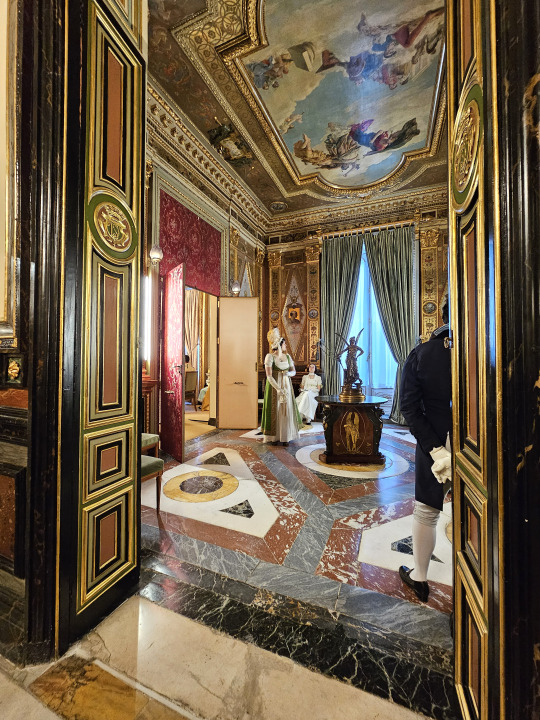

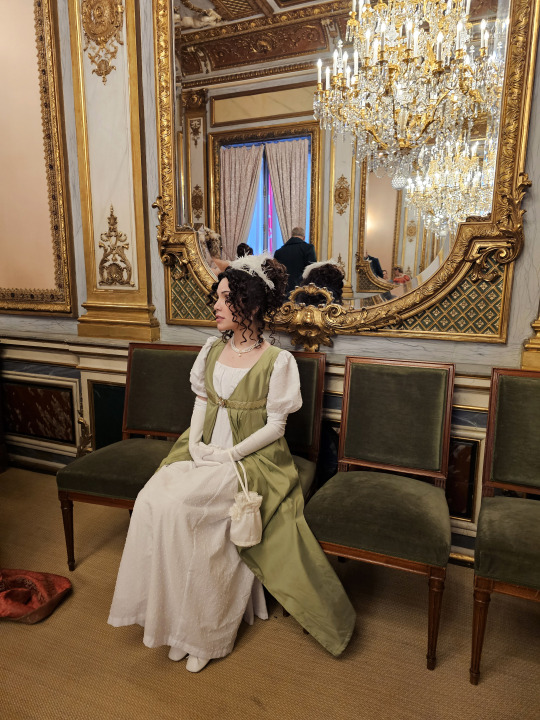
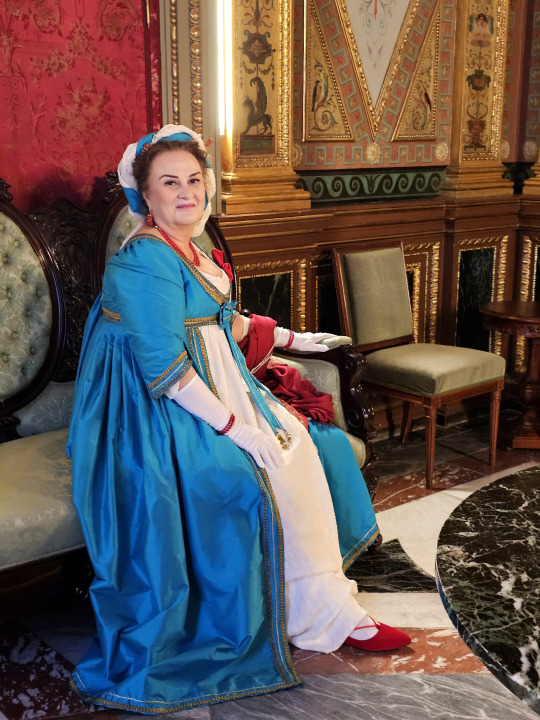
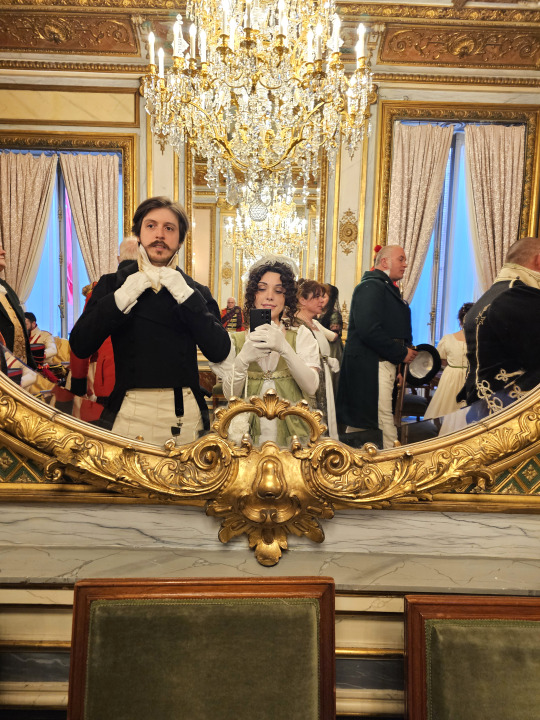
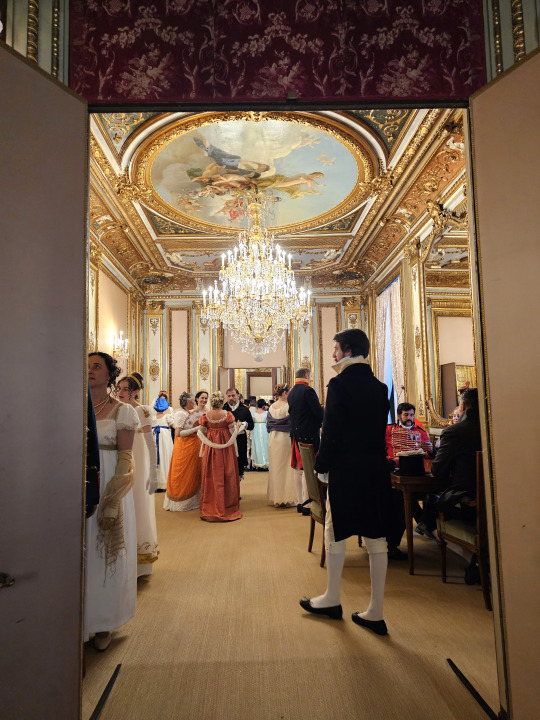
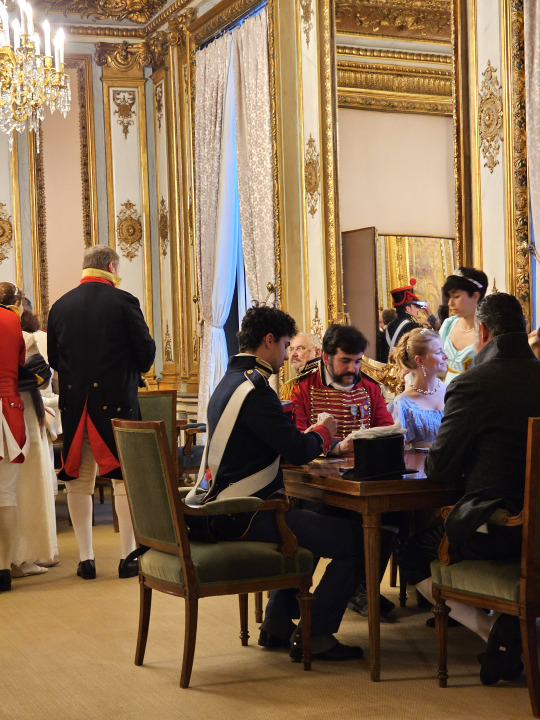
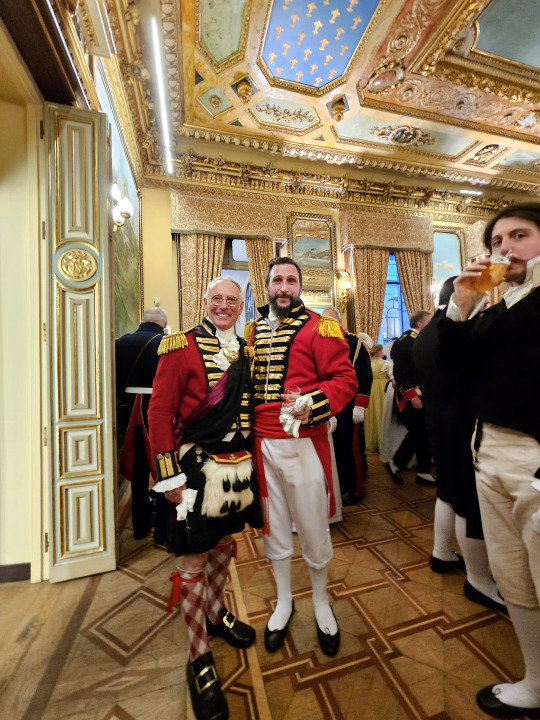
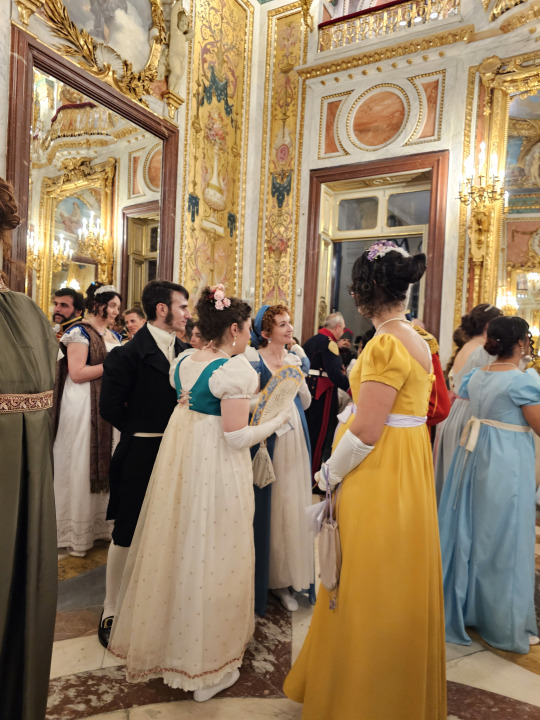
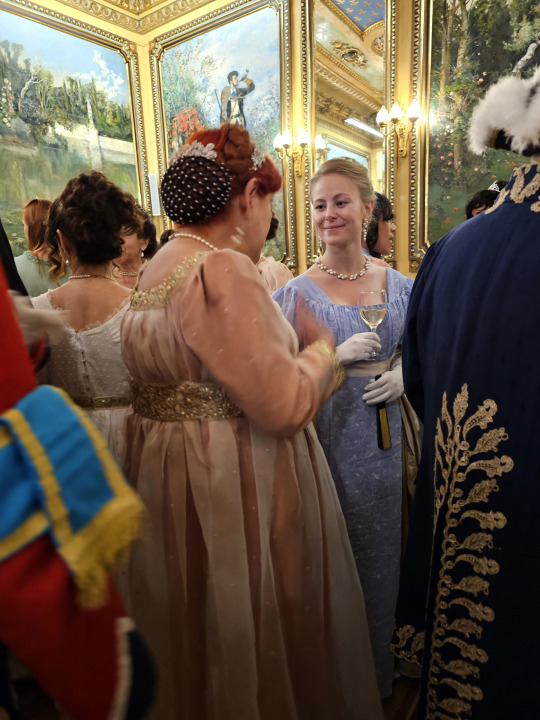
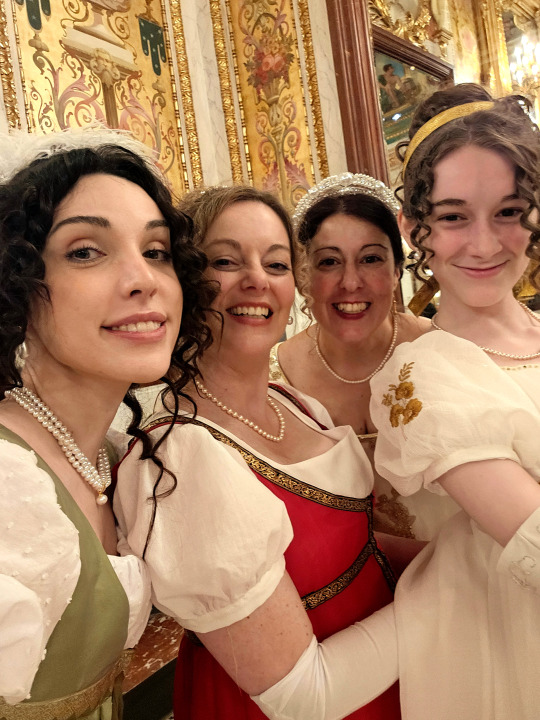
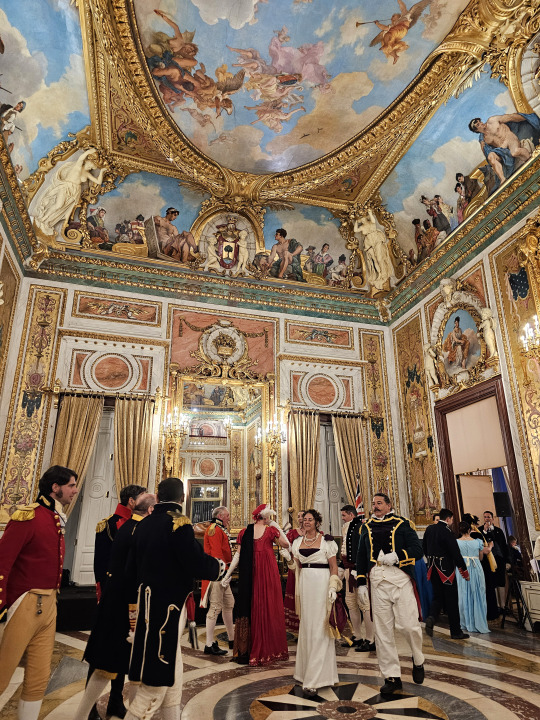
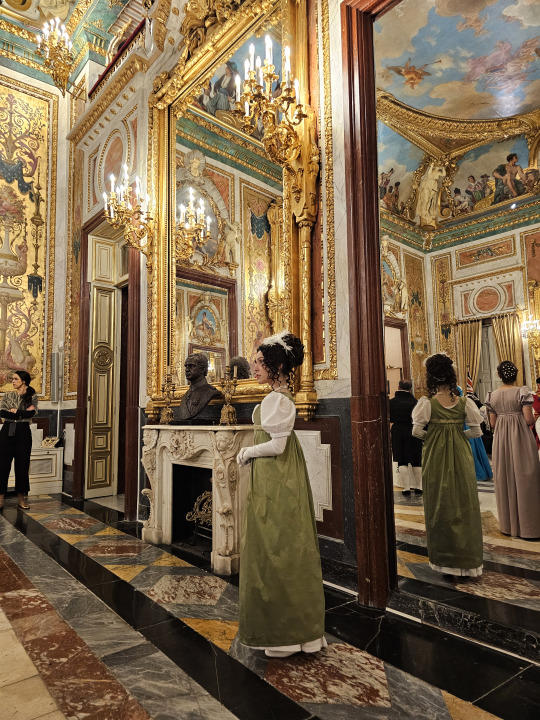
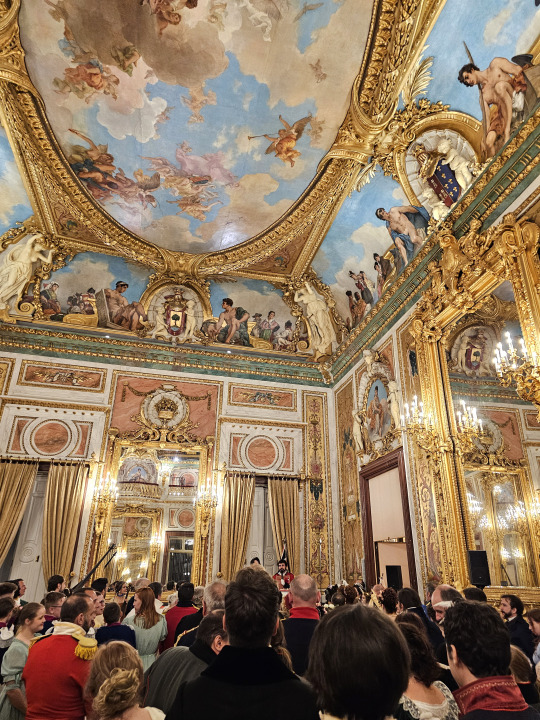
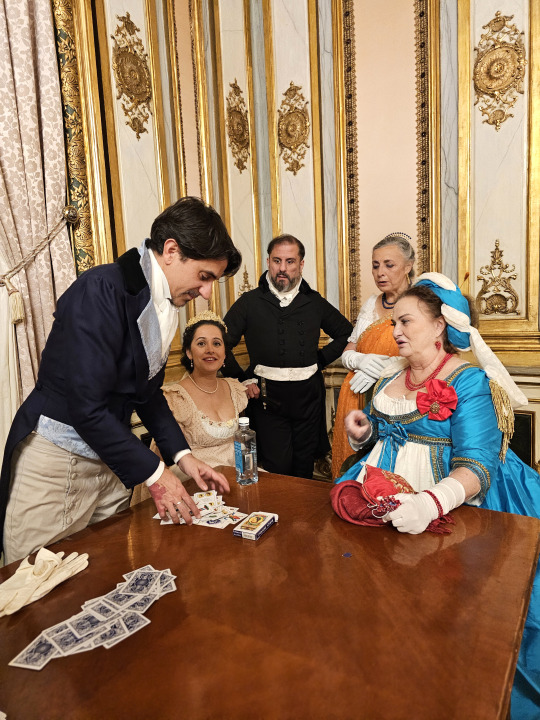
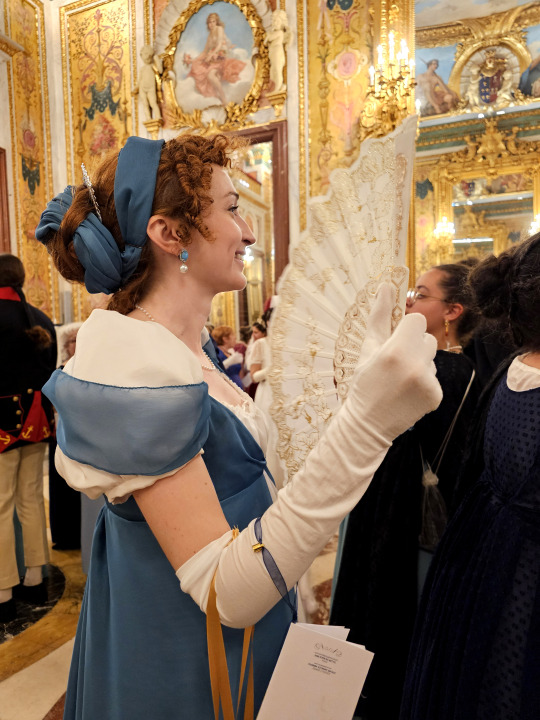
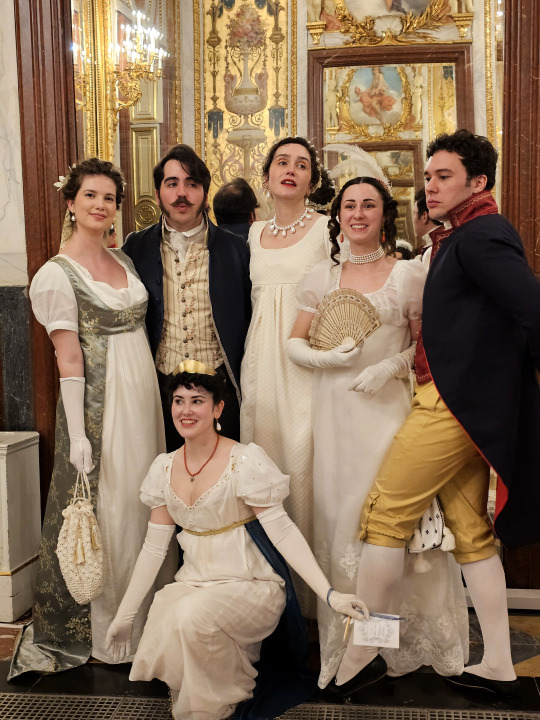
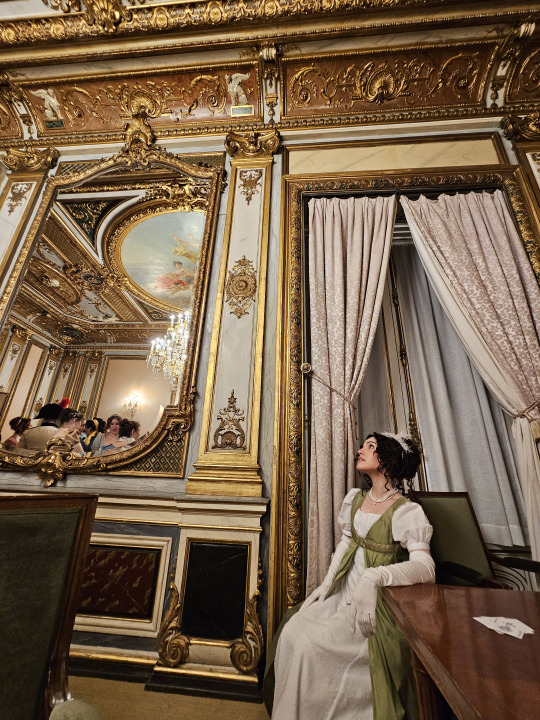
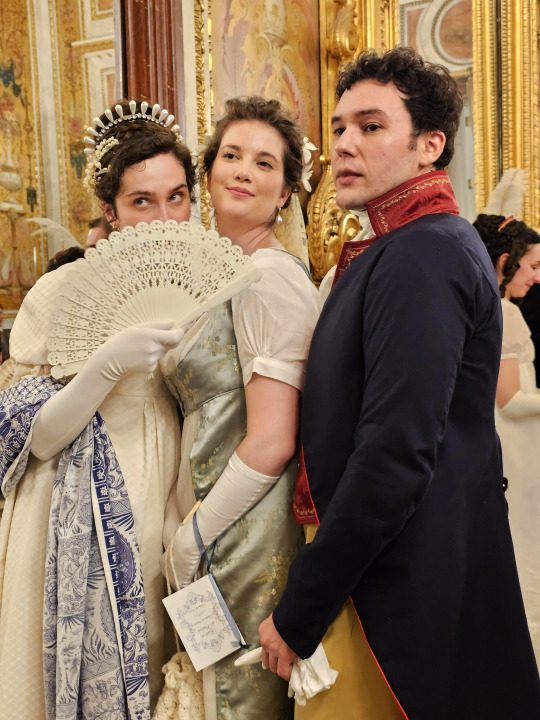
Photos at Madrid's Victory ball! 💃
We attended our first ball! It was such a dreamlike experience!! It was also our first time doing Regency reenactment so it was a challenge. We haphazardly put together some looks, had a great time learning more about the fashion and the dances and met a bunch of lovely people from all over the world. The palace was stunning, the live band was wonderful and the food delicious, it was an unforgettable night 🥰
#nips photos#personal#regency era#historical fashion#historical reenactment#napoleonic era#Spanish independence#everyone looked stunning this event felt so surreal#walking around the palace halls filled with people dancing and eating and chatting felt like time travel#the dancing was so fun too I have some videos AHHH I can't wait for the next one!! hopefully in november#there were many events these days I'll share more soon#we participated in the official reenactment of the battles at the royal palace too we were on tv and all lmao#I really need to get a fancier outfit for the next one!! we had to get ready in ONE HOUR for this ball#just curling my hair takes like 30 minutes sjkfhsf 😭 it was a mess#I looked ridiculous but Nicolas was very handsome and we had a great time so I don't care!!
660 notes
·
View notes
Text
Preview of my piece for the Claveles Zine 🩸👁️ [PREORDERS NOW OPEN!]

An amazing project showcasing a bunch of incredible Spanish artists ✨
Preorders will open next week (check it out here) and it’ll be available as digital and physical zine in different languages, along with beautiful merch goodies!
#sarielsnowingsart#queer artist#trans artist#illustration#queer art#Zine#Spanish#Spanish artist#Salamanca#Angel#non binary#support independent artists
60 notes
·
View notes
Text

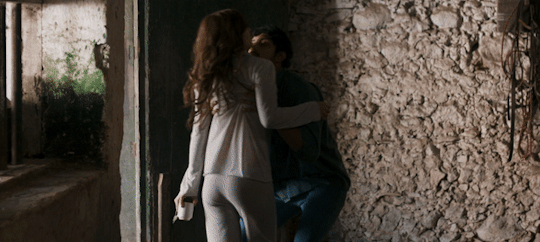
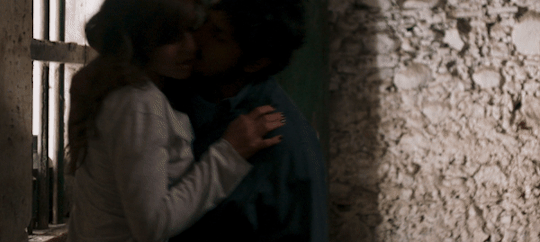

Tenoch Huerta Mejía and Iliana Fox
Las Aparicio (2015)
Directed by Moisés Ortiz Urquidi
#ummmm yeah#sorry y’all#not really!#tenoch huerta#iliana fox#juan#mercedes#las aparicio#2010s movies#film#independent film#spanish speaking films#mexican film#mexican actor#cdmx#tenoch huerta mejia#romance#kiss#my gifs#my edits#namor
382 notes
·
View notes
Note
Can we get something with Canada and Uruguay? Heard they're similar in historical aspects
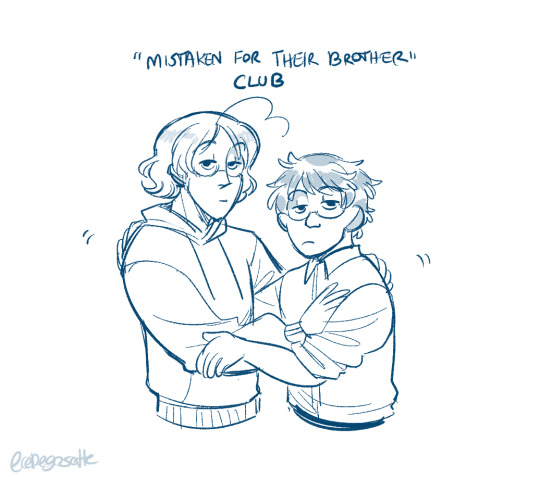

they'd be a funky duo
#context: uruguay often gets confused with argentina due to similar spanish and culture#there's even a gag about who invented the asado and other things lmao#uruguay's territory also was the subject of a custody battle in the 1600s century. passing from spain to portugal and vice-versa#it ultimately ended as a brazilian province in the 1800s and declared independence in the 1820s resulting in the cisplatina war#and then it was britain who granted them independence lmao#hetalia#hetalia world stars#my art#hetalia fanart#hetalia fan art#hws canada#hws uruguay#aph canada#aph uruguay#matthew williams#also yeah its zaza in the last pic
296 notes
·
View notes
Note
hello, would you be willing to talk a bit about the political history of real madrid vs barcelona as i know that many small real madrid a facist organisation but not sure why?
thank you, i love your page by the way!
thank you, anon! and sure, but full disclaimer that i am in no way a "neutral source" when it comes to discussing real madrid, but i'll try to be as objective as i can. 😉
first, you have to understand that barça is completely tied to catalan identity and represents so much more than a football club. més que un club (our slogan) refers to that!
also, i won't give you a history lesson, but it's based in the turmoil of the mid-1900s in spain and the spanish civil war and franco dictatorship and the suppression of catalan language and autonomy during this time. barça even had to remove the catalan flag from the badge! and franco murdered fc barcelona president josep sunyol in the 1930s too!
last year barça president laporta reignited controversy during one of the referee scandals when he said: "madrid was historically favoured in refereeing decisions, it was the team of the regime, close to political, economic and sporting power for 70 years.” and there's quite some truth to that as you can see in this article (although it's not always as black and white!)
and it's certainly true that franco used real madrid as a tool to push his agenda and its "model" status as to how a spanish club should behave and operate. and madrid is franco's city after all.
so yeah, madrid supporters deny ties to franco, but we barça supporters have a different view of history!
anyway, here's a fun video about johan cruyff, barcelona, and catalan independence!
youtube
32 notes
·
View notes
Photo
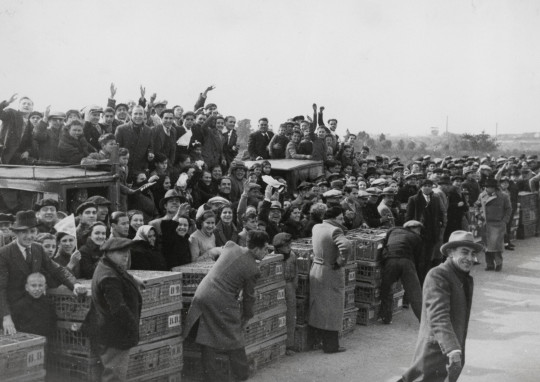
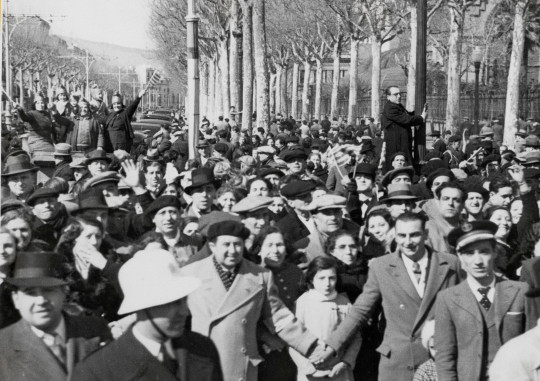
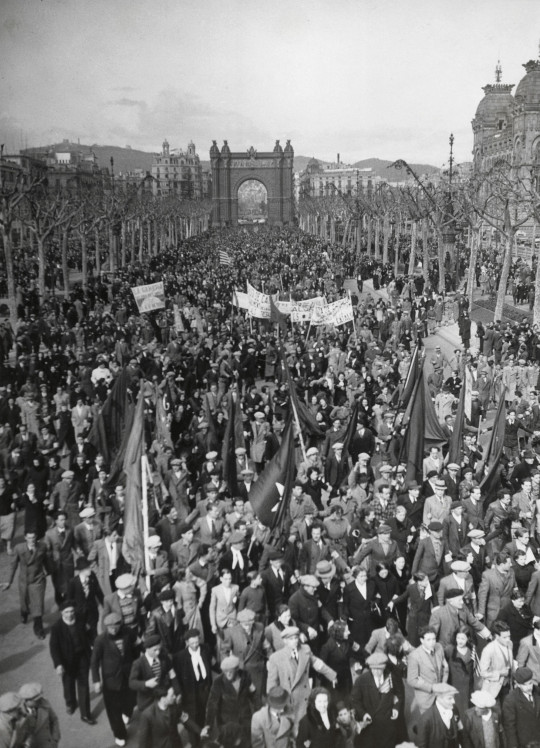
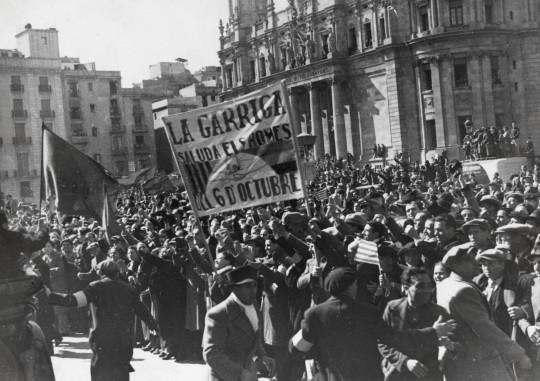
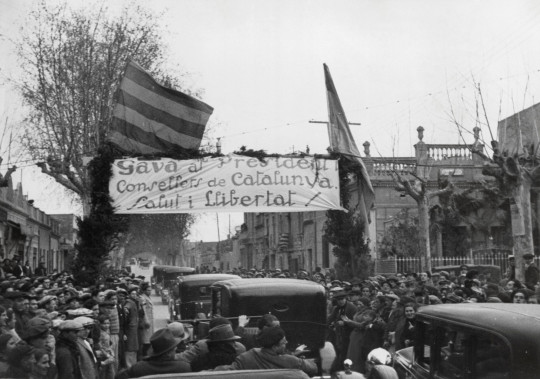
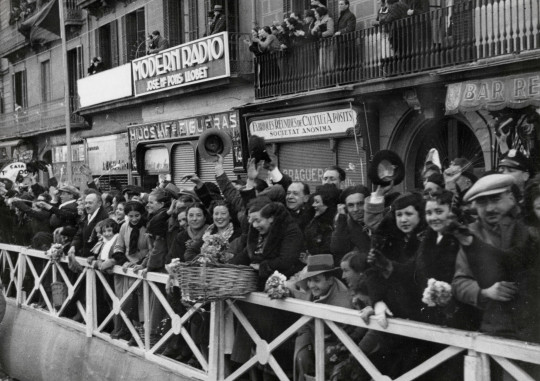
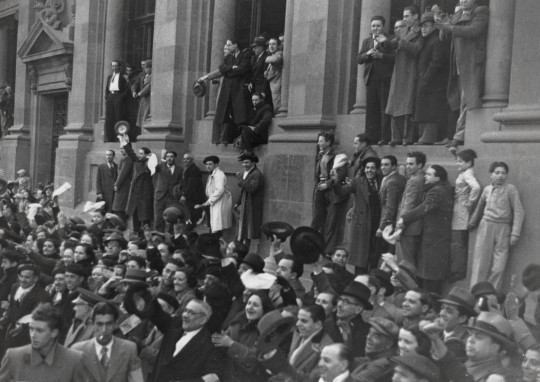
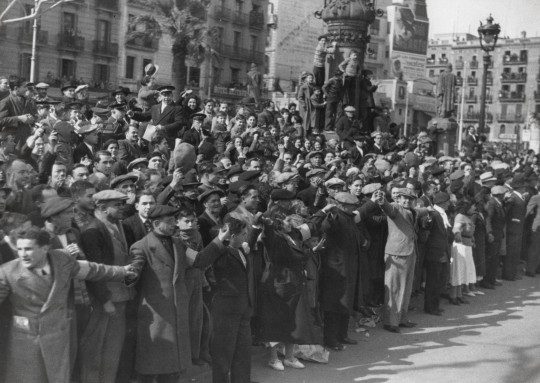
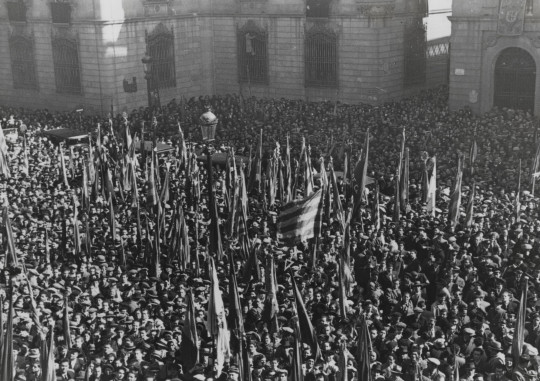
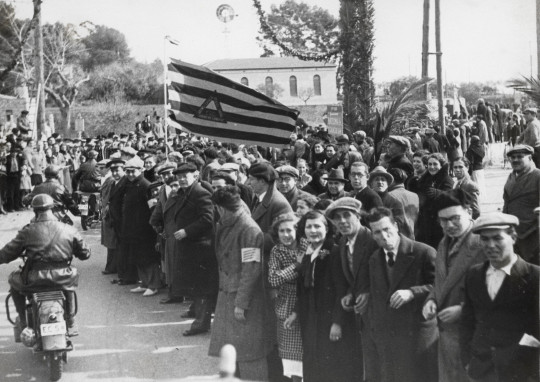
1st of March, 1936.
People on the streets of Barcelona (capital city of Catalonia) welcoming the president of Catalonia Lluís Companys and other members of the democratically-elected government of Catalonia, who had been arrested and jailed after the October Events (Fets d’Octubre) of 1934.
Context: As the Spanish government became more and more conservative, leaving important decision-making positions to fascists and reactionary monarchists, Catalonia was leaning every time more towards the left and republicanism (anti-monarchy). The Republican Left of Catalonia (ERC) party had won the elections in Catalonia and the anarchist union CNT kept growing in members. The difference was absolute. And it got even worse when the Spanish Government cancelled the newly approved law of the Catalan Government that protected landless agricultural workers against the abuses of landowners (the Spanish Government claimed that important decisions like this were exceeding the power of a regional government, even when Catalonia’s inhabitant massively claimed in favour of this law).
To put an end to this situation, the government of Catalonia organized a Revolutionary Committee (Comitè Revolucionari) with people from many different Catalanist organizations to prepare a response. Most trade unions declared a general strike against the Spanish government and, on October 6th, Lluís Companys went on the balcony of the Government of Catalonia (the balcony overlooks a big square where a huge crowd had gathered) and declared the Catalan state inside the Spanish federation.
As a response, the Spanish government declared the state of war in Catalonia and sent the army to arrest all the Catalan government. The Spanish army shot against the population who was defending the institutions, killing 74 people and injuring 252, including members of the Catalan Proletarian Party, the Communist Party of Catalonia, Catalan State, the Workers’ and Peasants’ Block, the CNT, and other civilians. On the other side, the revolutionaries who defended themselves from the army killed 12 soldiers and 2 military policemen (guardia civil), and 10 civilians who died as part of crossed fire.
The Catalan State only lasted 10 hours. The Spanish army, on top of killing and injuring all those people, also arrested more than 3,500 people, including all members of the democratically-elected Government of Catalonia, many mayors and MPs, and leaders of other Catalan leftist parties and unions. The members of the Government of Catalonia were judged and sentenced to 30 years of prison, the Government of Catalonia was abolished and Catalonia became direct subject of a Spanish military governor chosen by the Spanish government. 129 city councils around Catalonia, where the election winner had been ERC, were also abolished and given to conservative parties. The Spanish government also used the opportunity to once again impose Spanish as the only language to be used in official documents in Catalonia (during the Republic, Catalan had been legalized); ban many of the most popular Catalan newspapers, including La Publicitat, L’Opinió, La Humanitat, El Diluvio, Solidaridad Obrera (this one is the CNT’s newspaper) and La Rambla; turned the Parliament of Catalonia into a military barrack; prohibited the activities held by pro-Catalan/leftist parties, unions and associations and closed their headquarters. Of course, they also made sure that the law that protected the agricultural workers remained illegal, and did 1,400 trials against landless agricultural workers affected by this law to evict them from the fields.
The Spanish Government didn’t lift the state of war in Catalonia until April 1935. The Government of Catalonia was restored but with little power, it wouldn’t get back the power that it had before the October Events (which, as you saw, already wasn’t that much) and restore democracy in Catalonia until the general elections of February 16th 1936. The leftists won the elections and the people in prison for the October Events were given an amnesty, this is where the pictures you saw above are from.
However, this reinstalled (partial) democracy did not last for long. The fascist Spanish nationalists are sore losers and couldn’t accept that the right-wing had lost the elections in Spain, so they did a coup, starting the Spanish Civil War (1936-1939). The war would be won by the fascists, starting a fascist dictatorship that lasted until 1978, based on the concepts of national-Catholicism, anti-labour, hatred of national minorities like Catalans, and strict patriarchal gender behaviour codes.
Knowing that they would be killed if found by the fascists, Lluís Companys and the rest of members of the Government of Catalonia left Barcelona at the last moment, when the fascist troops were entering the city. They escaped to France, but the Spanish fascist government asked the Gestapo (secret police of Nazi Germany) to search for them and sent them to Spain. In August 13th 1940, the Gestapo found Lluís Companys in Paris, arrested him and sent him to Madrid (Spain’s capital city). He was judged by a military court-martial and sentenced to death, and the next day he was executed. He was 58 years old. His last words, right before getting shot, were “for Catalonia!”.
Lluís Companys is the only democratically-elected president to have been executed by a fascist government in Europe’s history. Between the entrance of fascist troops in Barcelona (January 26th 1939) and Lluís Company’s execution (October 15th 1940), the Spanish fascist government had already officially executed 2,760 people in Catalonia, and more would follow.
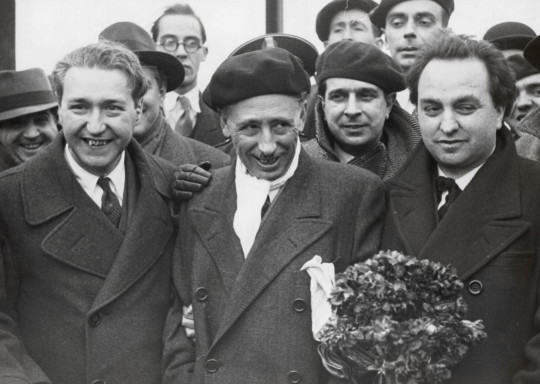
In the centre of the photo, Lluís Companys (the one wearing a beret) receiving a flower bouquet upon his return to Catalonia after the amnesty.
(Photos: Arxiu Fotogràfic de Barcelona)
#història#catalunya#lluís companys#barcelona#spanish civil war#catalonia#democracy#history#20th century history#1930s#historical photos#historical#catalan#independence#european history#spanish history#guerra civil#photojournalism#antifascist#antifa#national liberation
48 notes
·
View notes
Text
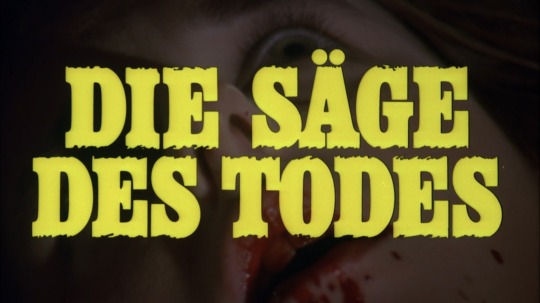


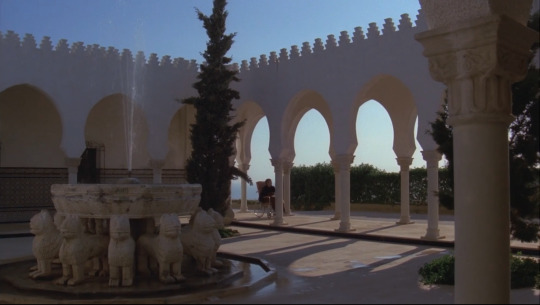
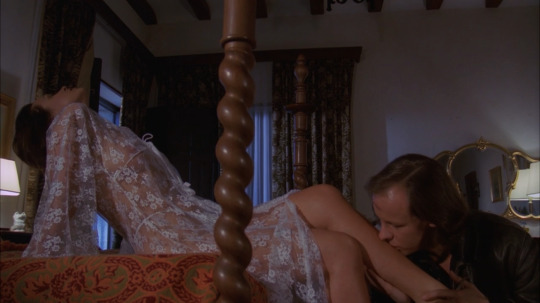


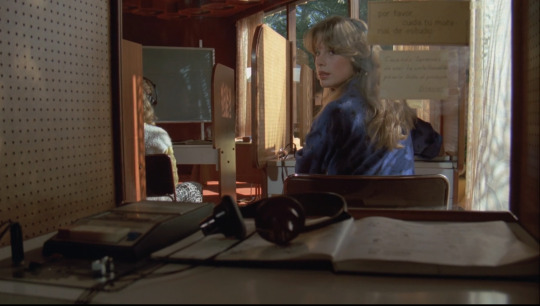
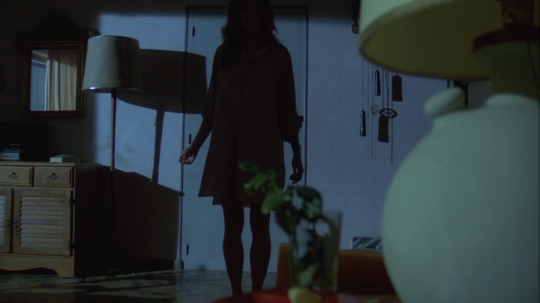
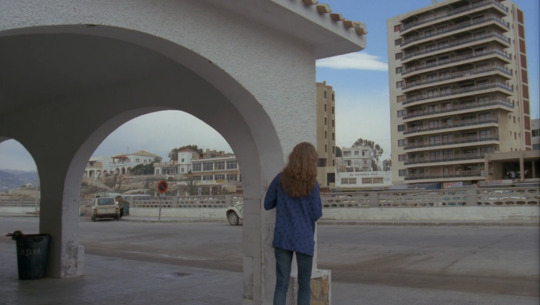





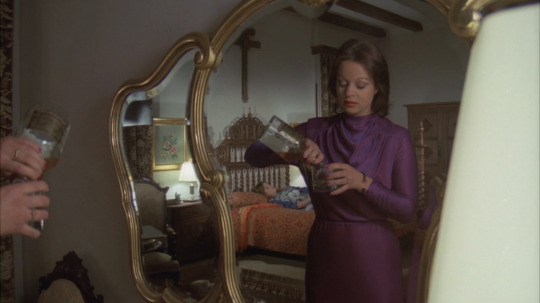
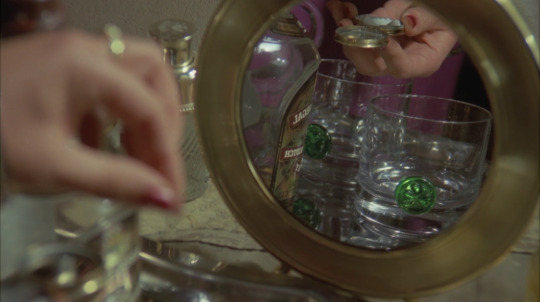

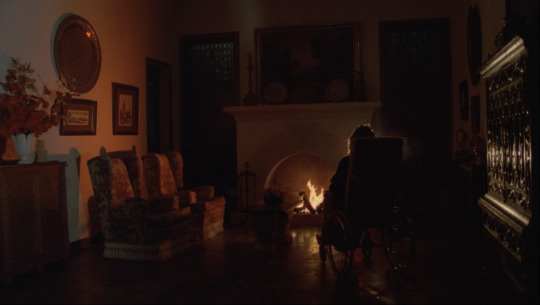

Bloody Moon / Die Säge des Todes (1981)
Director: Jesús Franco
Cinematographer: Juan Soler
Starring: Olivia Pascal
#bloody moon#jesus franco#olivia pascal#spanish horror#german horror#80s horror#cult film#cult cinema#exploitation film#cult horror#80s movies#slasher film#slasher movies#Die Säge des Todes#independent horror#classic horror#tubi tv#jess franco
89 notes
·
View notes
Text
The Vtuber of the day is Gumae! She is a Bunny girl artist and rigger! She streams on Twitch in Spanish and English as an indie!





Her twitter if you want to check out her work:
#gumae#usamimi#usagimimi#bunny girl#vtuber#vtubers#vartist#v artist#v artists#vartists#indievtubers#indie vtubers#indievtuber#indie vtuber#independent vtuber#independent vtubers#l2d rigger#rigger#virtual youtuber#vtubing#virtual youtubing#en vtuber#envtuber#envtubers#english vtuber#esvtuber#spanish vtuber#esvtubers#spanish vtubers#es vtuber
8 notes
·
View notes
Text
bridgerton lends itself to extraordinary self-insert escenarios which very little media can replicate, namely that of me finding a spaniard to have a duel of honour with because it just so happens that the Mexican independence war is being fought right at the same time the bridgertons are falling in love and i am not leaving that stone unturned
#you have to scroll past many x reader fics in the bridgerton tag#and so I've had ample time to think about what MY life would be if i was transported to the 1810s#and I've come to the conclusion id end up in jail after screaming at someone about workers rights or womnes rights or gay rights or etc etc#OR id be a staunch defender of my country's independence efforts and end in fisticuffs with any spanish sympathiser#and benedict bridgerton would have no choice but to swoop in and rescue me now would he.#psa newsmen still at large
24 notes
·
View notes
Text
Happy Birthday to this beautiful man 🌶️✨



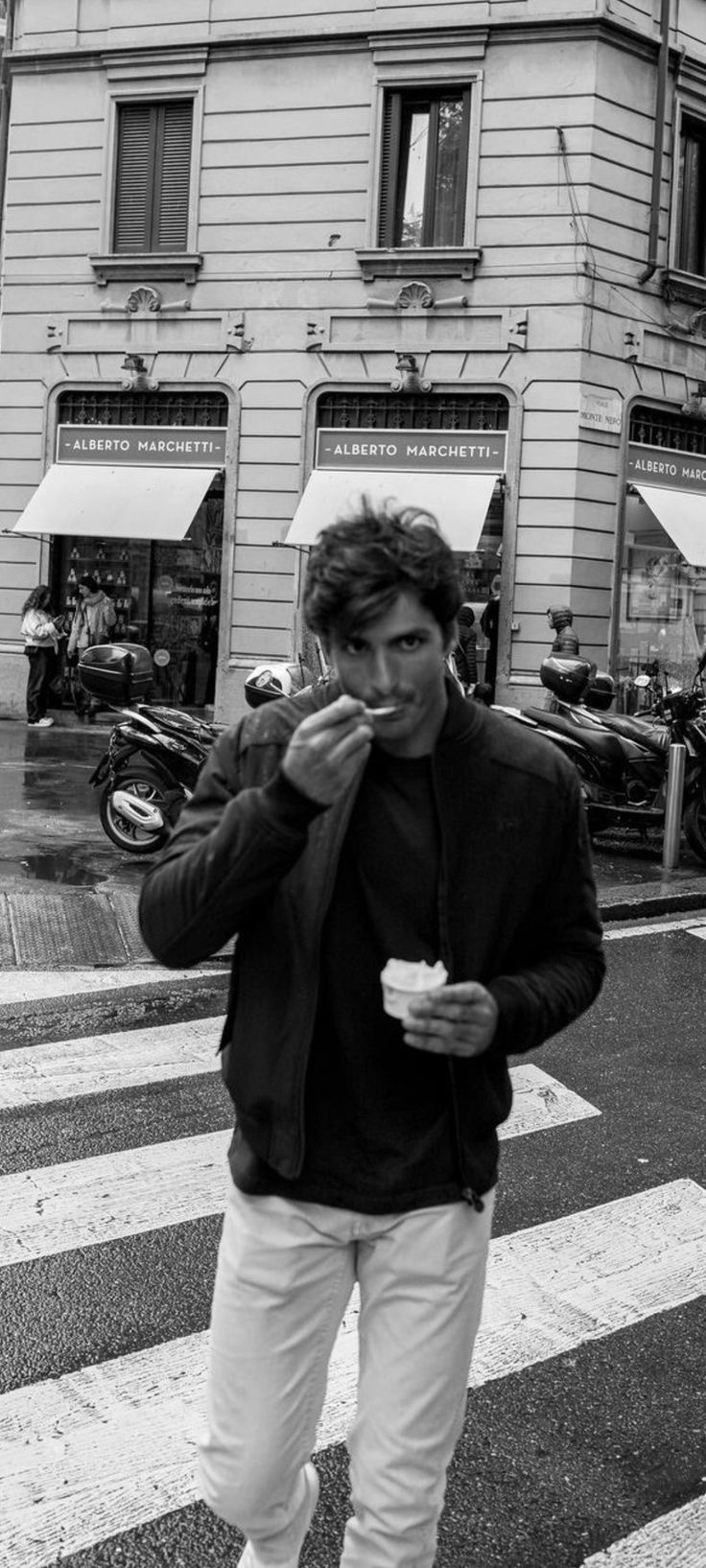


#happy birthday smooth operator#formula 1#f1#formula one#Carlos sainz#if I have to celebrate a SPANISH MAN on the month of my country’s Independence Day then I’m glad it’s Carlos
18 notes
·
View notes
Text


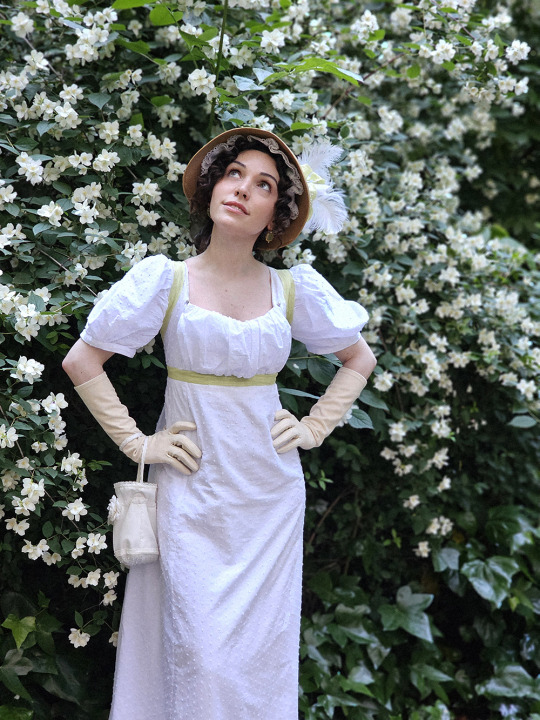
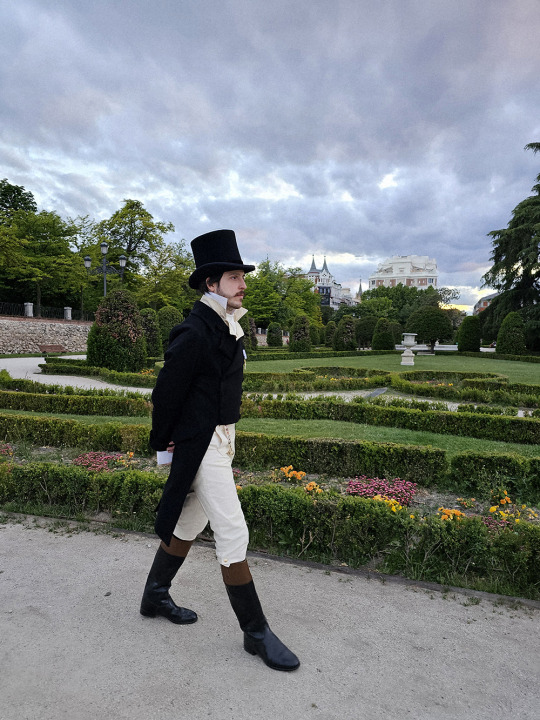
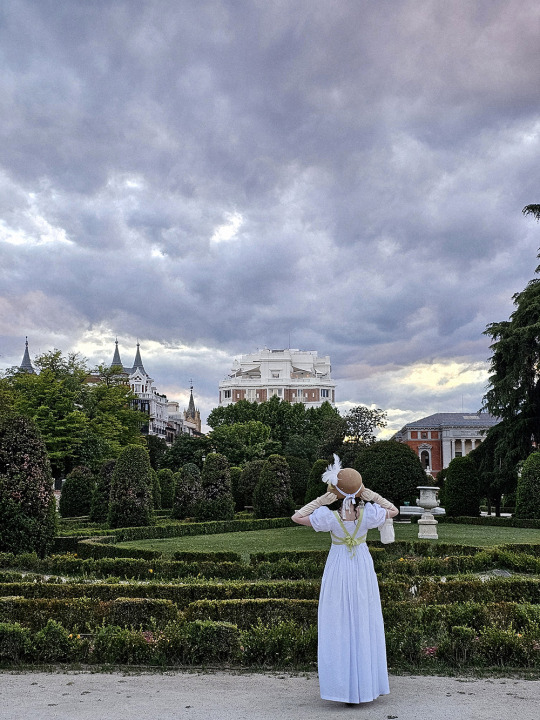


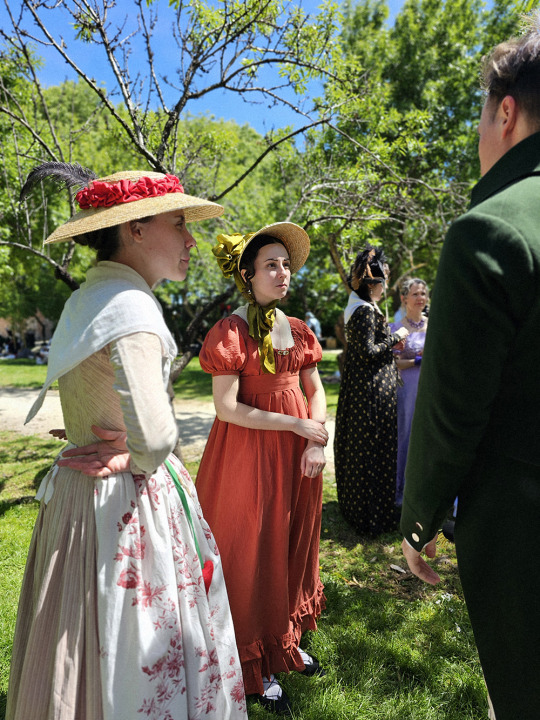
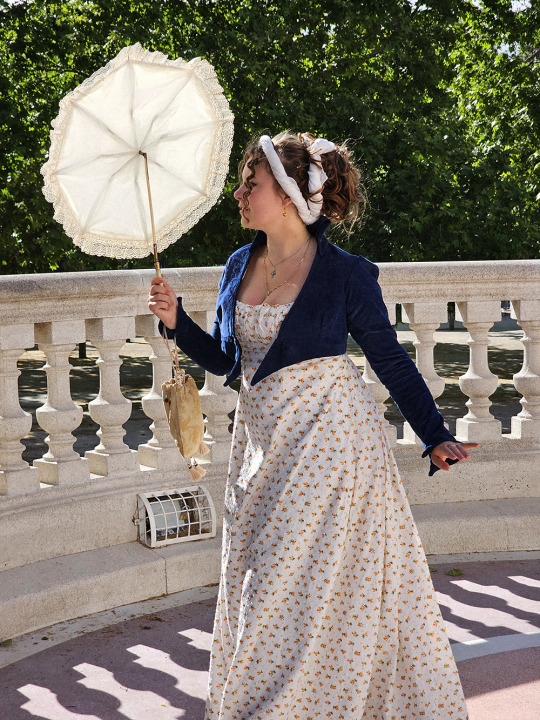
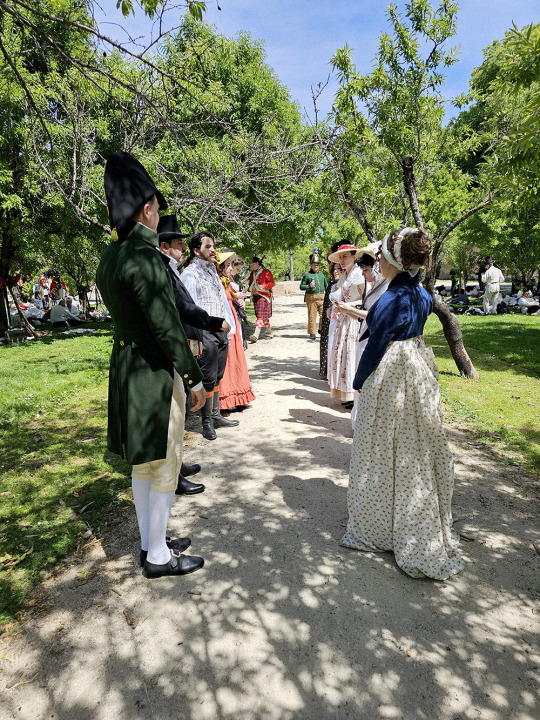
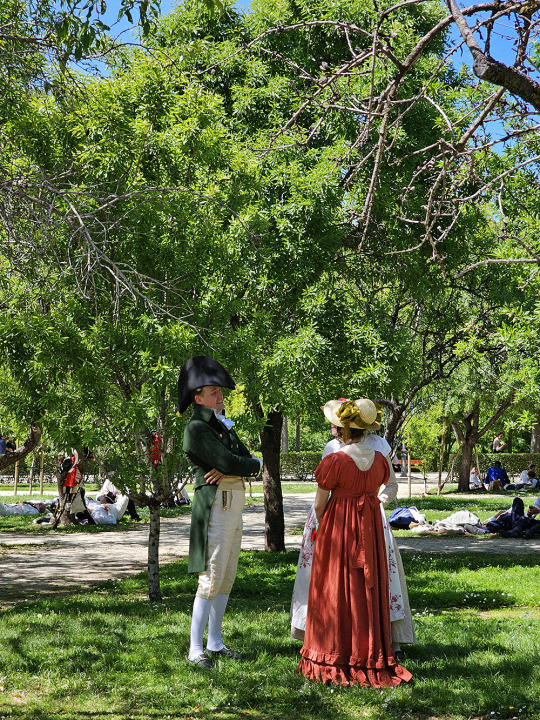
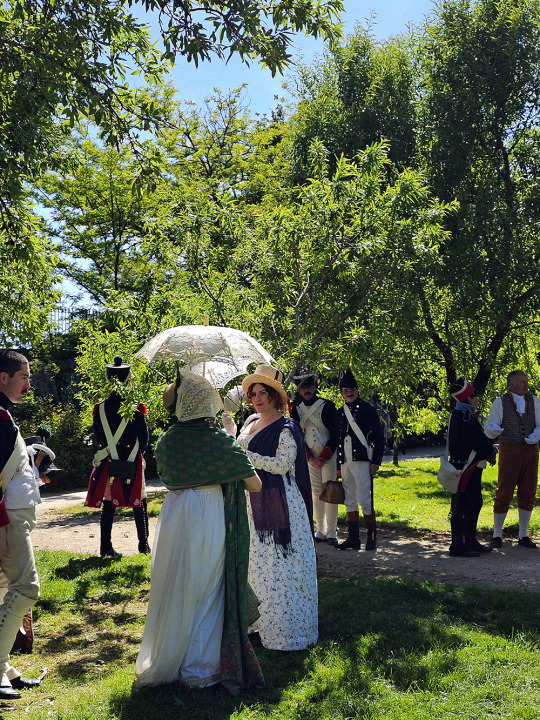
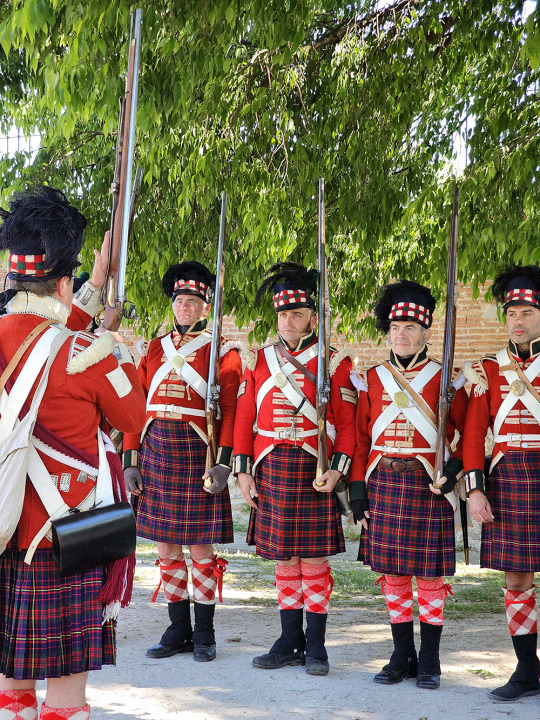
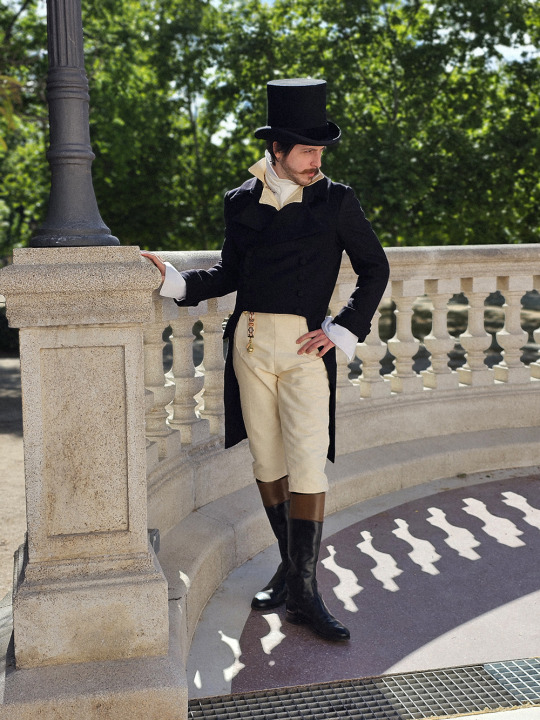
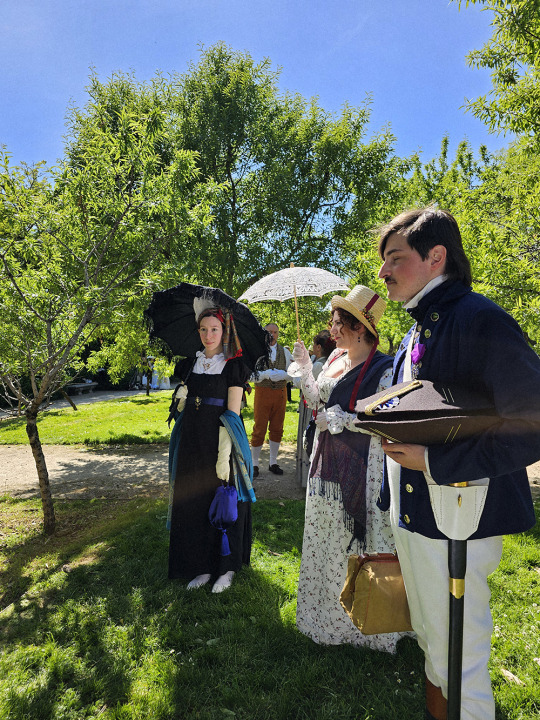
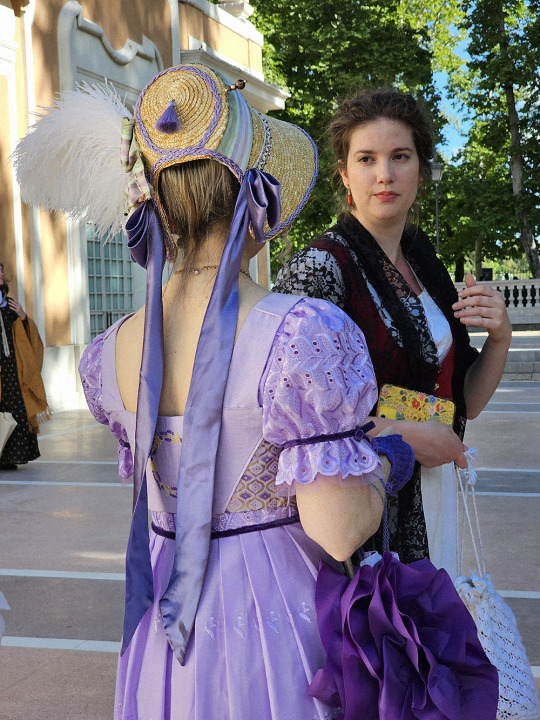
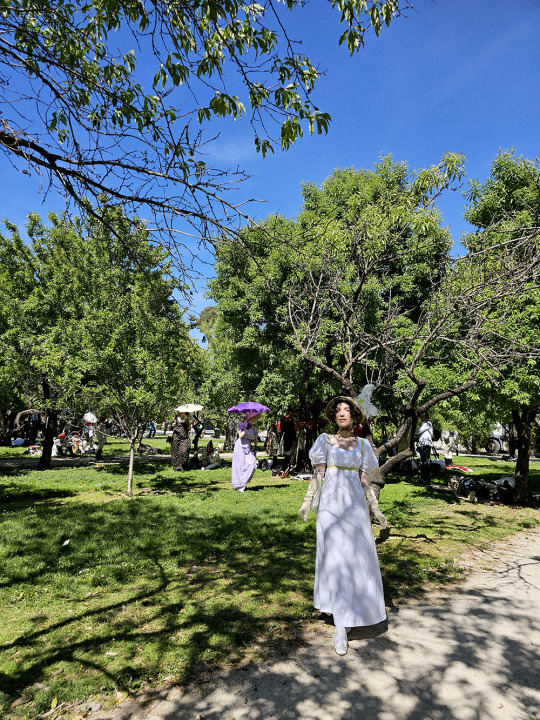
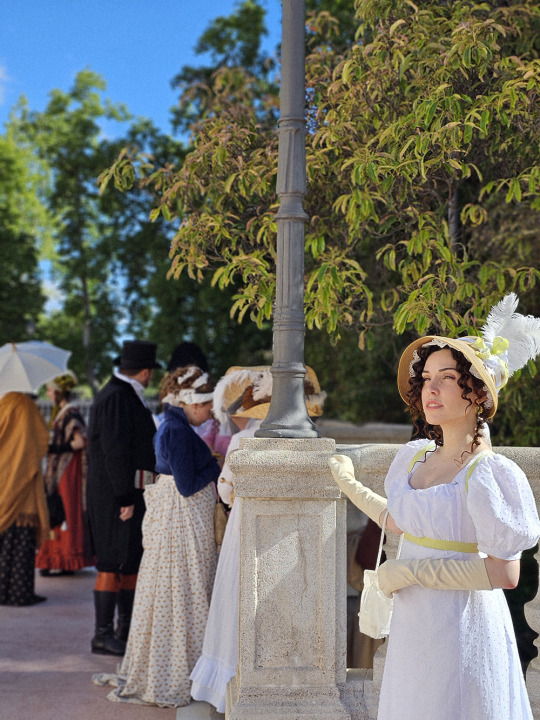
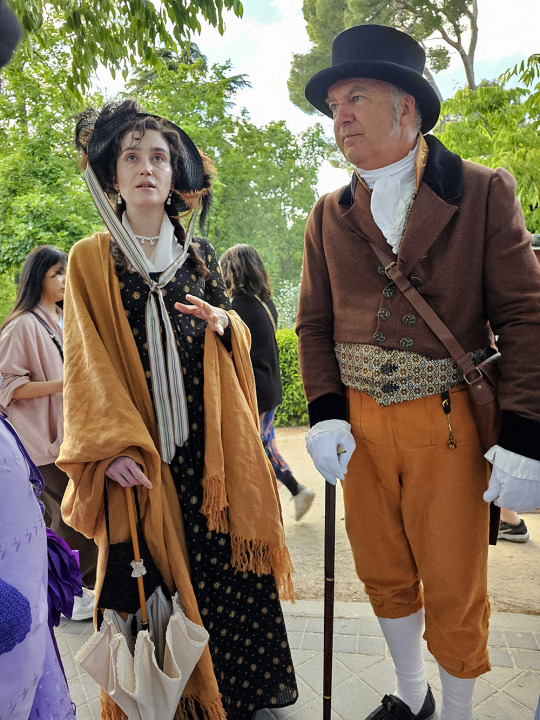
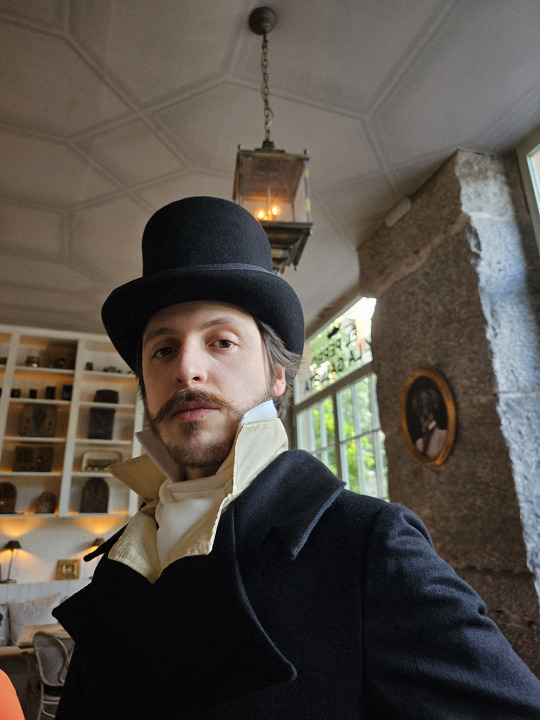

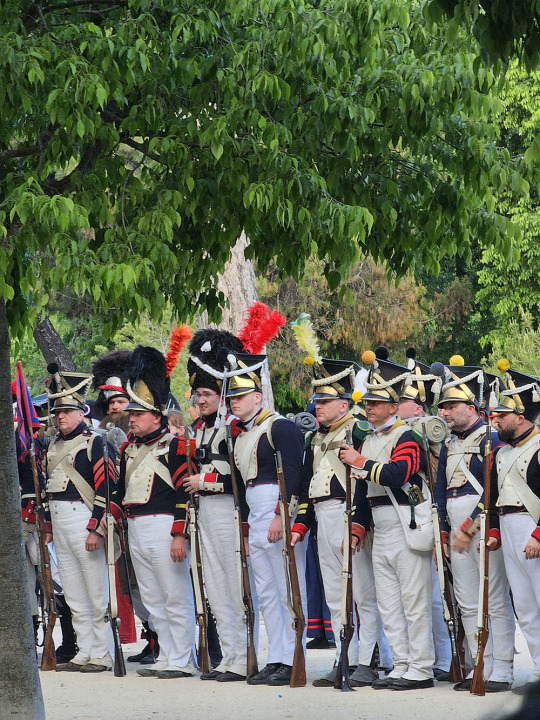
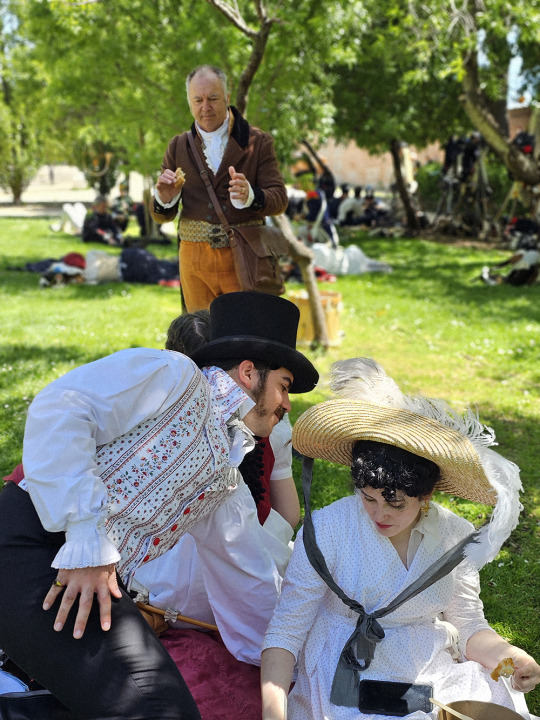
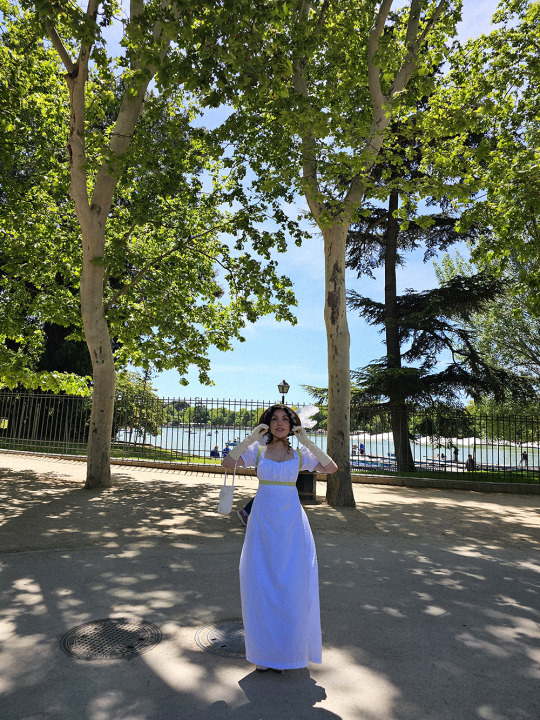
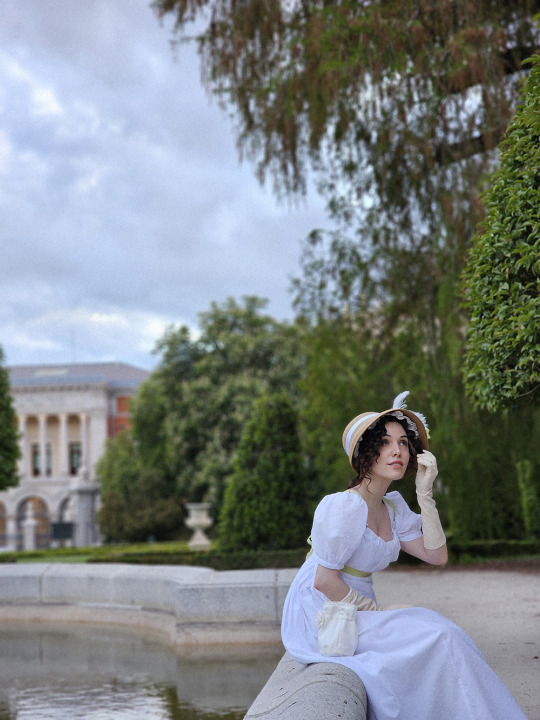
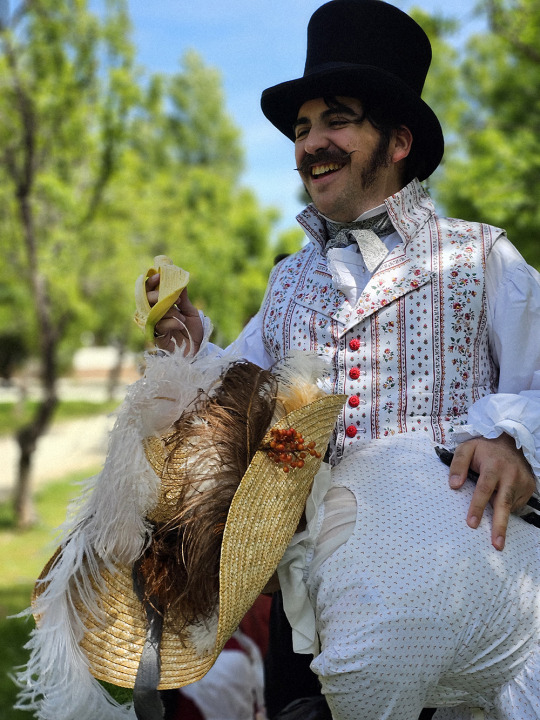
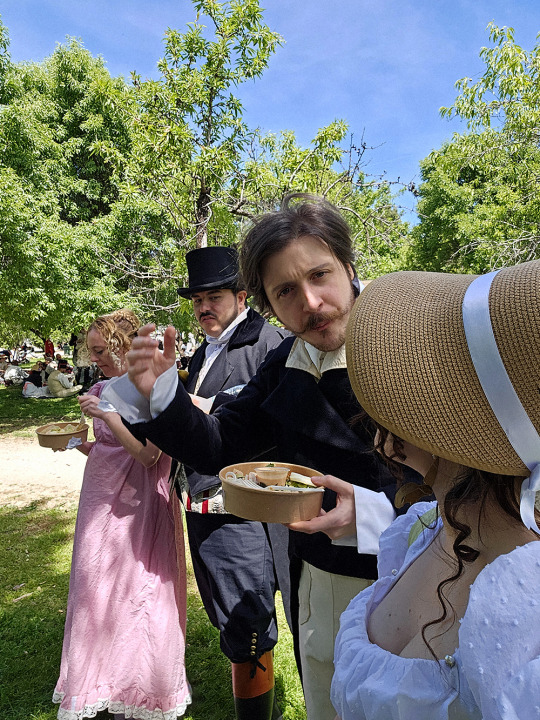
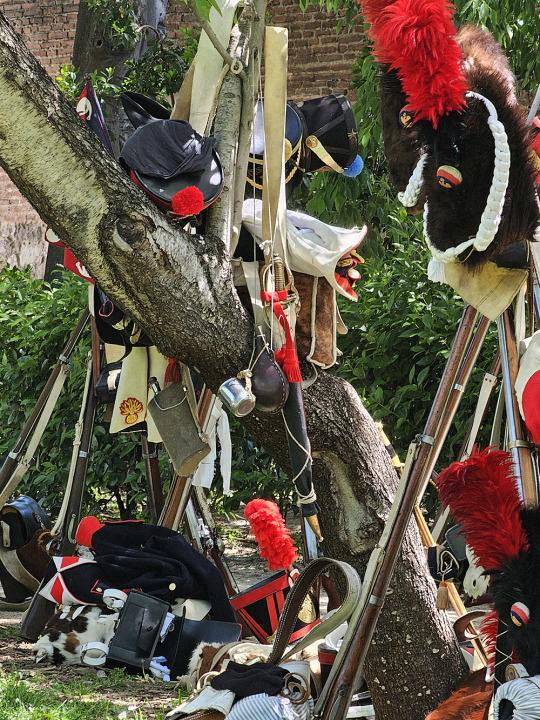
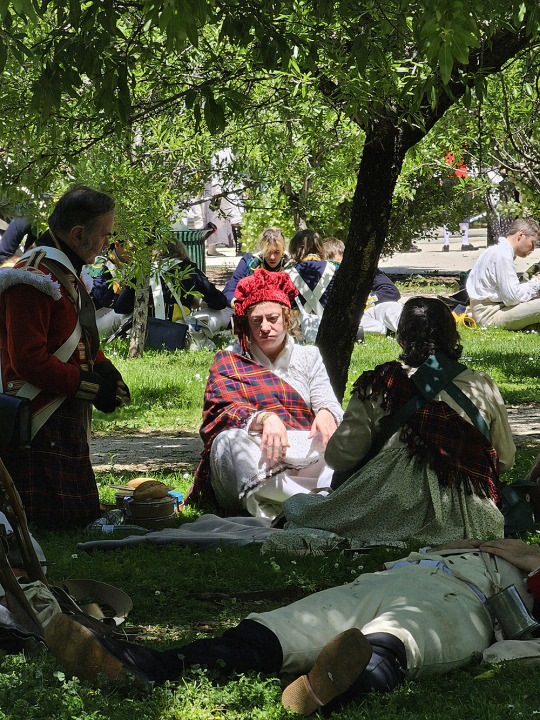
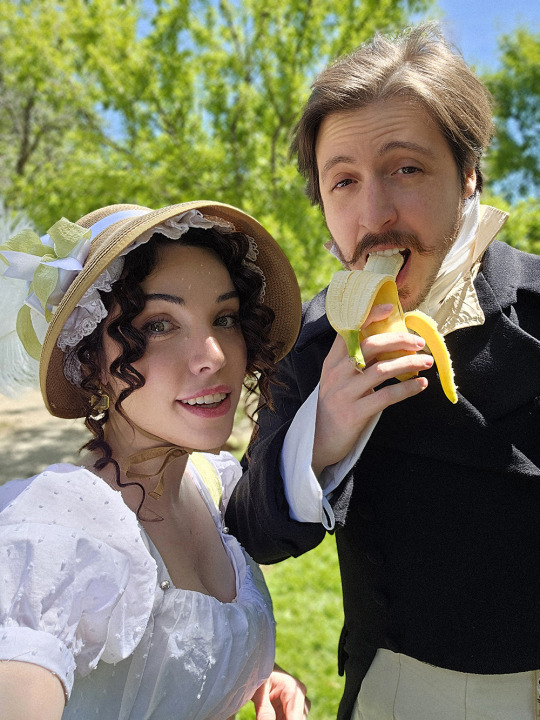
At the Retiro park on may 4th for more battle reenactments and a picnic! There were several hundred reenactors! it was a record number this year and walking around the park seeing soldier camps and groups of both gentry and working class reenactors as far as the eye can see you could tell!! We played historical outdoor games with sticks and hoops, danced to live music played by some of the soldiers who joined us and brought some instruments, had a delicious meal and ice-cream at the park and then tea at a restaurant, a lovely day! 😊
#nips photos#personal#historical fashion#historical reenactment#regency era#napoleonic era#spanish independence#last week feels like a dream!! we had such a great time 😭 we feel so lucky and grateful and welcomed honestly
342 notes
·
View notes
Text
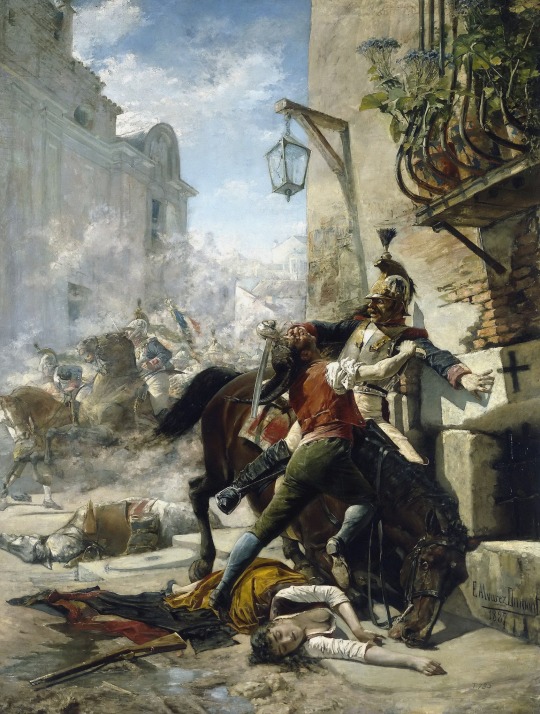

Malasaña and his daughter fight against the French in one of the streets leading down from the park to San Bernardo. 2 May 1808
by Eugenio Álvarez Dumont
The painting pays homage to two of the heroes who achieved the most legendary glory in the struggle of the people of Madrid against the French troops during the War of Independence. Thus, it illustrates the moment in which the guerrilla Juan Malasaña kills the French dragoon that has just murdered his daughter, the embroiderer Manuela Malasaña, who supplied her father with rifle cartridges to fight the French troops from her home, during the assault on the Monteleón park.
#eugenio álvarez dumont#prado museum#museo del prado#madrid#spain#spanish#art#painting#history#europe#european#france#french#napoleonic wars#peninsular war#iberia#war of independence#malasaña
82 notes
·
View notes
Text

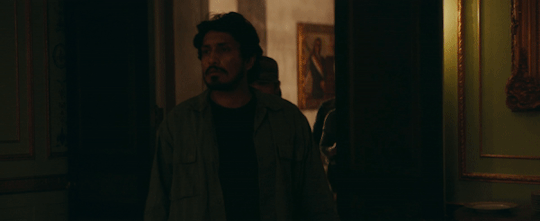


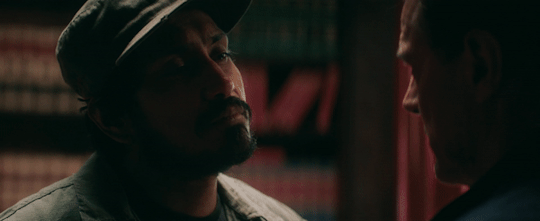
Tenoch Huerta Mejía as Comandante Benjamin
Bel Canto (2018)
Directed by Paul Weitz
#pls credit if u repost#i need him#tenoch huerta#comandante benjamin#bel canto#2018#2010s movies#spanish speaking films#mexico#mexican actor#beauty#aesthetic#my edits#tenoch huerta mejia#film#independent film#poc in film#wakanda forever
206 notes
·
View notes
Text
Can't believe Mexico colonized Max......
#THIS IS A JOKE#It's because they built the Mexican independence building near Max's house and Max is Spanish and you know#qsmp#qsmp liveblogging
16 notes
·
View notes
Note
Is supporting Barca a cultural thing? Like if you’re Catalan and support Real Madrid is it offensive or traitor behavior lol?
hi anon - i've talked about this a ton on my blog, but short answer, yes. supporting barça is a symbol of catalan pride, especially given how tied barça has been to the catalan independence movement and its history over time. (as opposed to real madrid and the other barcelona based team espanyol, which have historically been associated with franco and the center).
there's a reason why we have a specific senyera (catalan flag) shirt as part of our official collection, and why the captain's armband often uses the senyera too.


now of course, things have changed since the franco regime, but resentments still linger, especially after the most recent 2017 violence and arrests for the pro-independence movement.
liking real madrid doesn't automatically make one a traitor, especially given how international football has become, but it's very hard to separate catalan identity with barça. to me, it's like one and the same.

in the vast majority of cases, culers aren't hating on a player simply because they supported real madrid in the past. like you said, it's almost always something else that's driving it, like with athenea, ivana, olga, lucy and others.
take tere abelleira or caroline weir for example. lots of culers have nothing against them personally and yet they are two of real madrid's best players. i have no problem with either of them and personally think tere plays very well for spain.
but as i outlined above in the ask about cultural identity above, for a current barça player to support real madrid is a hard pill to swallow because it goes beyond a mere rivalry.
also, there's a huge difference between hating on someone and making a joke about them being a madridista, like what people are doing with ewa pajor. culers love to give madridistas a hard time and talk about how they will cure them once they come to barça.

vox is a hard, right wing party in spain that's anti-everything good in this world. they are fascists, misgoynistic, homophobic, and oppose immigration rights and want people like me and leila ouahabi to go back to where we came from (even though moros have been in spain for hundreds and hundreds of years🙄).
but they hate autonomous communities, and oppose catalan and basque independence movements and rights, and want us all to speak spanish only.
basically, they are the absolute worst and should be avoided at all costs.
#fcb femení#fc barcelona#real madrid femenino#catalan independence#futfem#woso#spanish culture#athenea del castillo#vox
35 notes
·
View notes
Photo

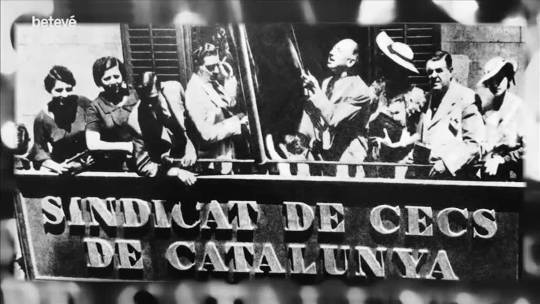
November 4th 1934: Roc Boronat was arrested by order of the Goverment of the Republic of Spain.
Roc Boronat was a Catalan independentist who was known for having collaborated in founding the Blind People’s Union of Catalonia (in Catalan, Sindicat de Cecs de Catalunya). This was the first union of blind people in our country and it had a great impact in the living conditions of blind people.
He was working in the Barcelona City Hall when a group of blind people approached him with the proposal to create the union. He immediately helped them create it with the resources needed, and the union also received support from Lluís Companys (president of Catalonia) and Carles Pi Sunyer (mayor of Barcelona). Up to that point, the immense majority of blind people lived in extreme poverty and made a living begging for charity. Roc Boronat had the idea of creating “el cupó del cec” (the blind’s coupon), so that it would be blind people who would be in charge of selling lottery. Thanks to this, blind people could make a living for themselves and gain funds for the union.

[ID: a “blind people’s coupon”. It’s a small paper printed in black and orange and in the Catalan language. It has the lottery number 074 written in numbers and letters, a Catalan shield with a torch, it says “10 cents”, “Blind People’s Union of Catalonia”, “October 9th 1936″, and the phone number and street address of the union in Passatge de la Pau 7, Barcelona.]
The union used this money to organize lessons and workshops for blind people, so that they could learn a variety of trades, and created a library.

[ID: black and white photo of a group of people in a room, some of them wearing sunglasses, sitting at desks and typing on a typewriter. A woman, probably a teacher, is the only one standing up. She’s standing next to one of the men and looking over his shoulders, as if helping him or instructing him.]
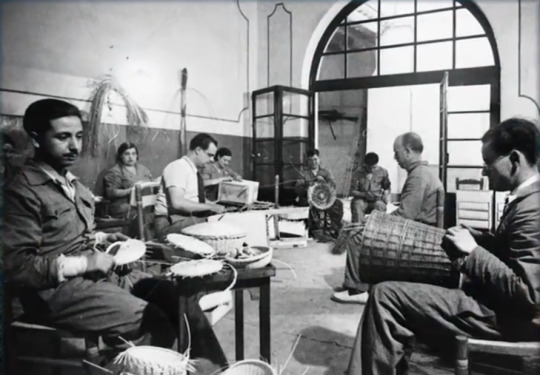
[ID: a group of 8 people sitting in an approximate circle weaving baskets. They’re wearing the characteristic overall of 1930s Catalan workers, except for one wearing a shirt.]
Roc Boronat was also involved in other progressive politics, most involved in the movement for Catalonia’s independence, as he was a member the pro-independence party Estat Català and was one of the founders of Esquerra Republicana de Catalunya, the anti-monarchy leftist party of Catalonia. He was first arrested in 1926 for having collaborated in the Prats de Molló Plot, an attempt of militarily freeing Catalonia from Spanish occupation by “invading” Catalonia to proclaim the Catalan Republic. Later, in 1934, the Spanish police arrested him again “for having prepared the food for the forces of Estat Català” in the October Events, an insurrection from the progressive government of Catalonia which tried to declare independence from Spain to avoid obeying the conservative Spanish government’s oppressive laws. For this, Roc Boronat was sentenced to prison for “assistance to rebellion”.
In 1936, the fascists did a coup d’etat to gain power in Spain, but failed in the areas were workers were more organized and resisted, such as Catalonia. In the resisting antifascist areas, there was an amnesty for political prisoners, so Roc Boronat could leave prison and go back to working for better living conditions of working people.
In 1939, the war ended with the victory of the fascists, and a fascist dictatorship was established which would last until the dictator Franco’s death in 1975. The persecution of Catalan culture and language, leftism, trade unions, and all progressive social causes was brutal.
In 1938, a fascist and Nazi-sympathizer called Ramón Serrano Suñer who lived in the area already under fascist control, copied the idea and founded ONCE (which stands for the Spanish “National Organization of Spanish Blind People”). When the fascists took over Catalonia, they immediately illegalized the Blind People’s Union of Catalonia and gave all its assets to ONCE.
ONCE became a very important organization in Spain, in big part thanks to the fact that it’s them who run the lottery. Despite its origins, ONCE does a great work and is nowadays is considered the world leading organization for blind people in both giving service to blind people and creating jobs for them.
If you visit Catalonia or Spain, you will see outside supermarkets or in little cabins that it is still blind and visually-impaired people who sell the lottery.

[ID: two photos of lottery sellers. They wear a green vest with lottery tickets hanging from them. In the first photo, he is sitting next to an open portable desk which holds all the different types of lottery tickets. In the second photo, the seller is standing next to a glass cabin that serves as his little shop. The cabin has the words “ONCE” on each side and the organization’s logo, a stick figure with a guidance stick.]
Sources: BTV, El Nacional.
#història#sindicat de cecs de catalunya#roc boronat#catalunya#history#catalonia#blind#blindness#once#1930s#accessibility#disability#disabled rights#visually impaired#low vision#guerra civil#revolutionary catalonia#spanish civil war#antifascism#independence
65 notes
·
View notes